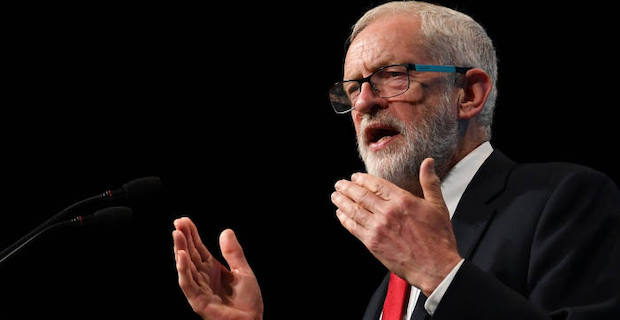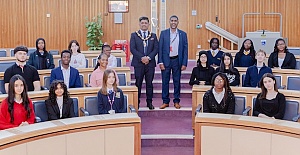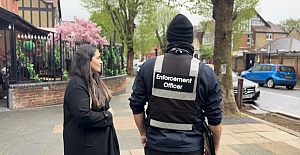Britain’s opposition parties gathered on Monday to explore ways to force Prime Minister Boris Johnson to abide by a legislation that blocks a no-deal Brexit. Gathering at the Labour Party leader Jeremy Corbyn’s office, leaders of the opposition parties discussed how to ramp up the pressure on Johnson, who has repeatedly said he would not ask for an extension beyond Oct. 31 and the U.K. would leave the EU on that date.
The meeting saw the attendance of Scottish National Party’s leader in Westminster Ian Blackford and Lib Dems leader Jo Swinson as well as representatives from other opposition parties and independent MPs.
During the meeting, the parties discussed a no-confidence vote to bring down Johnson’s government if he denies to obey the law, also known as the Benn act, which blocks a no-deal exit from the bloc at the end of October.
They remained in agreement to look into all options to stop the country’s departure without a deal, including a national unity government to succeed Johnson when and if he fails to find majority for confidence vote.
The numbers in the House of Commons do not look in favor of the prime minister at the moment, especially after the removal of party whip from 21 MPs earlier this month as they voiced and voted different Brexit opinions than Johnson’s.
The opposition parties however have failed to agree on who should lead such a national unity government, which would first block the no-deal exit by securing an extension to the current Brexit deadline of Oct. 31 and then initiate a general election.
Corbyn has said the interim government after Johnson is ousted should be led by the opposition leader thus by himself.
“The position is quite simply this: when a government collapses then the Leader of the Opposition is invited to form an administration,” he said in an interview.
However, Lib Dem leader Jo Swinson rejected the idea of forming a government under Corbyn.
“I have been crystal clear but I will do so again – Jeremy Corbyn is not going into Number 10 on the basis of Liberal Democrats’ votes,” she said.
"It is positive that the cross-party discussions that are being had continue to be constructive,” she said, while ruling out a no confidence motion this week.
"It is understood that, if anything, that would just increase the risk of a no deal Brexit and therefore play in Boris Johnson's hands,” she said.
If Boris Johnson loses such a no confidence vote and cannot secure enough votes in 14 days following the vote, the Queen will ask any other MPs in the House of Commons to form a government which could receive confidence of the MPs.
Johnson who is in the Conservative Party conference in Manchester has insisted that the country would leave the EU on Oct. 31 with or without a deal, rejecting the law that would force him to request further extension to Article 50.
Last week, the country's top court said Johnson acted "unlawfully" to prorogue the parliament for 5 weeks until Oct. 14 and declared the move "null and void". The prorogation move was harshly criticized by the opposition as they saw it as a trick to keep parliament out of the way to force a no-deal Brexit on Oct. 31.


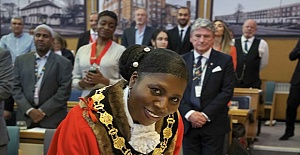 Margaret Greer has been sworn in as the new Mayor of Enfield
Margaret Greer has been sworn in as the new Mayor of Enfield Prime Minister Keir Starmer's 2025 Easter message
Prime Minister Keir Starmer's 2025 Easter message After Nesil Caliskan a by-election will be held in Jubilee ward in Enfield
After Nesil Caliskan a by-election will be held in Jubilee ward in Enfield Publishing the analysis, Labour’s Cllr Ergin Erbil said Everybody in Enfield deserves basic rights
Publishing the analysis, Labour’s Cllr Ergin Erbil said Everybody in Enfield deserves basic rights Great respect for Ataturk and enthusiastic youth celebration in England
Great respect for Ataturk and enthusiastic youth celebration in England UK AMBASSADOR TO TURKEY VISITS FETHIYE
UK AMBASSADOR TO TURKEY VISITS FETHIYE Journalists from Europe held the Turkish Media Workshop in Skopje
Journalists from Europe held the Turkish Media Workshop in Skopje The European Union called on Turkey to uphold democratic values
The European Union called on Turkey to uphold democratic values Brennan Johnson’s first-half strike seals London side’s win
Brennan Johnson’s first-half strike seals London side’s win The 'Prince of Paris' has impressed in his first EuroLeague season
The 'Prince of Paris' has impressed in his first EuroLeague season Saran Media And Euroleague Basketball Extend Media Rights Partnership for Four More Years
Saran Media And Euroleague Basketball Extend Media Rights Partnership for Four More Years Will Rangers be Jose Mourinho’s next victim?
Will Rangers be Jose Mourinho’s next victim?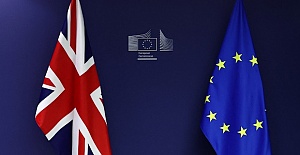 UK, EU reach landmark agreement on food, fishing ahead of London summit
UK, EU reach landmark agreement on food, fishing ahead of London summit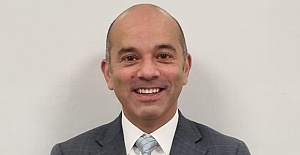 Perry Scott to become Enfield Council Chief Executive
Perry Scott to become Enfield Council Chief Executive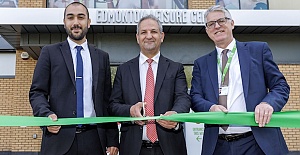 Residents welcomed back to Edmonton Leisure Centre
Residents welcomed back to Edmonton Leisure Centre Barclays has become the biggest UK lender so far to cut mortgage rates
Barclays has become the biggest UK lender so far to cut mortgage rates





